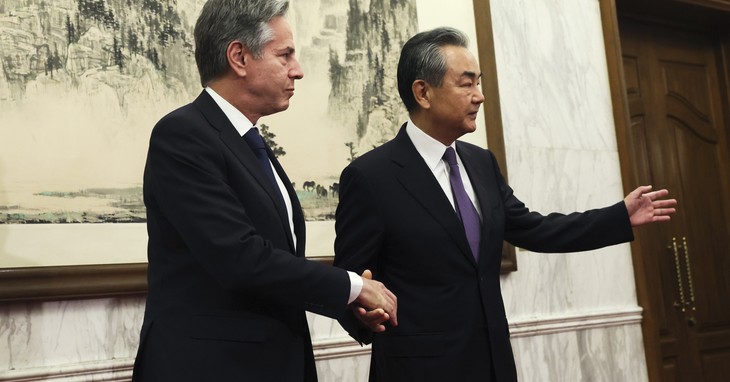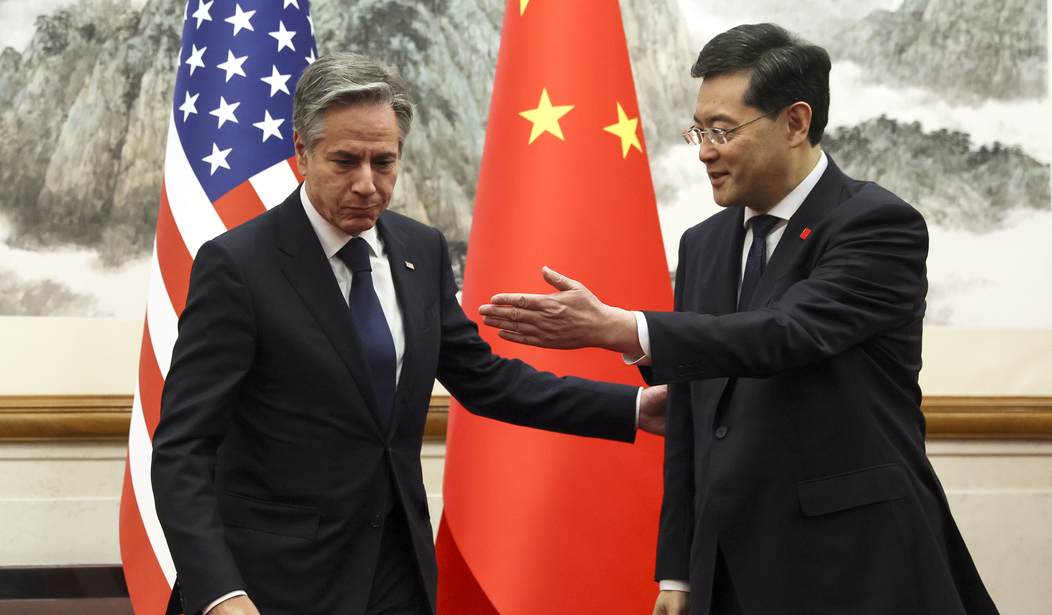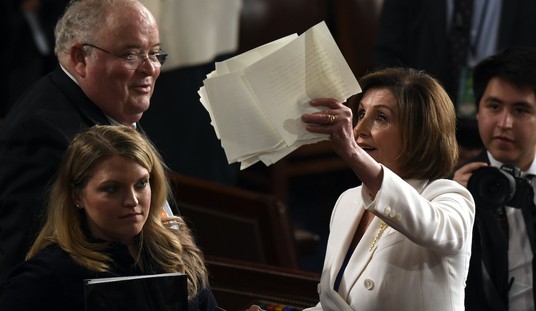U.S. Secretary of State Antony Blinken’s trip to China in June met with somewhat inauspicious results. Though an agreement to resume high-level discussions was reached, the military-to-military communications sought by the U.S. were nixed by the Chinese. During his visit, Blinken met with a number of Chinese officials in addition to President Xi Jinping, including Foreign Minister Qin Gang and top diplomat Wang Yi.

Blinken met for several hours with Chinese Foreign Minister Qin Gang on Sunday.
In the first round of talks on Sunday, Blinken met for nearly six hours with Chinese Foreign Minister Qin Gang, after which both countries said they had agreed to continue high-level discussions. However, there was no sign that any of the most fractious issues between them were closer to resolution.
Both the U.S. and China said Qin had accepted an invitation from Blinken to visit Washington but Beijing made clear that “the China-U.S. relationship is at the lowest point since its establishment.” That sentiment is widely shared by U.S. officials.
Qin has been notably “absent” from the public view since June 25, 2023, just a week after his meeting with Blinken. On Tuesday, it was announced via Chinese state media that Qin was being replaced by his predecessor, Wang.
China has reportedly ousted its outspoken foreign minister Qin Gang from office after he has been missing for a month.
Qin, who was among the Chinese officials to meet with U.S. Secretary of State Antony Blinken during his pivotal visit to Beijing in June, has been replaced by his predecessor, Wang Yi.
In an announcement on Tuesday evening, state media gave no reason for Qin’s removal. The move comes after he dropped out of sight almost one month ago amid speculation over his personal affairs and political rivalries, according to the Associated Press.
Two weeks ago, the Chinese Foreign Ministry announced that Qin would not be attending the Association of Southeast Asian Nations (ASEAN) Summit due to illness.
Chinese Foreign Minister Qin Gang is unwell and the country’s senior diplomat will take his place at a two-day summit of the Association of Southeast Asian Nations this week in Jakarta, Indonesia, the Foreign Ministry said Tuesday.
Foreign Ministry spokesperson Wang Wenbin gave no details of what was ailing Qin, who has not been seen in public in more than two weeks.
“State Councilor and Foreign Minister Qin Gang is unable to attend this series of foreign ministers’ meetings due to health reasons,” Wang said at a daily briefing Tuesday.
Qin, 57, had served as Foreign Minister since December 2022, with the added role of State Councilor since March 2023. Prior to that, he served as the Chinese Ambassador to the United States from 2021 to 2023. He is considered a close confidant of Xi and his absence has set the rumors swirling.
Qin, a close confidant of Xi who rose swiftly through the diplomatic ranks, hasn’t been seen in public since June 25. After he missed several high-level diplomatic meetings, China’s foreign ministry said in a July 11 news conference that Qin was suffering from “a physical condition.” That explanation is missing from the ministry’s transcript of the news conference. Responding to reports that Qin was caught having an extramarital affair with a Chinese reporter while he was ambassador to Washington, a foreign ministry spokesperson said on July 17, “I have no information to offer.”
So is this about illness, sexual impropriety, internecine conflicts? Or all of the above?
Inside the U.S. government there is a lot of speculation and intrigue about the issue but little hard information. U.S. officials initially guessed Qin had caught covid, but now he’s been gone longer than any bout of the illness would normally last. Several U.S. officials told me they thought the allegations of Qin’s affair were credible but not confirmed. Several said that, either way, he likely fell victim to infighting inside China’s top leadership clique, which is notoriously fratricidal.
“Qin has a huge number of enemies inside the government,” one senior U.S. official told me. “He was a marginally talented person, who, just through being close with Xi, catapulted up.”
Many of Qin’s rivals had good reason to be jealous of his meteoric rise. After Qin’s wife gave Xi’s wife homemade mooncakes, the story goes, Qin won entrance into Xi’s inner social circle. He was elevated from ambassador to foreign minister and made a member of the Politburo last year, and this year appointed state councilor as well. That made him one of the most powerful people in China. Qin’s predecessor as state councilor Wang Yi, now director of the CCP’s Central Committee Foreign Affairs Commission, is seen as Qin’s top rival. He did meet with Kissinger this week.
“The question is who released this information, accurate or not, and who benefits? Wang Yi is at the top of that list,” another U.S. official told me.
Whatever the reasons for his ouster (which we may never know), with Qin gone, Wang resumes the Foreign Minister role. Wang, for those keeping score at home, is the top diplomat who caused a kerfuffle earlier in July with his racially-tinged comments.
Wang, who currently serves as head of the Chinese Communist Party’s (CCP) foreign affairs commission, was directing the controversial remarks to Japan and Korea. He insinuated that Westerners are unable to distinguish between Chinese, Japanese, and Koreans, stating:
Americans take all visitors from China, South Korea and Japan as Asians. They cannot tell the differences and it’s the same in Europe.
No matter how yellow you dye your hair, or how sharp you make your nose, you’ll never turn into a European or American, you’ll never turn into a Westerner.
One needs to know where one’s roots are. China, Japan, Korea — if we can join hands and cooperate, it would not only suit the interests of our three countries, but also the wishes of our peoples and together we can prosper, revitalize East Asia and enrich the world.
Wang is also the one who, following Blinken’s visit, issued a statement chastising the U.S.
The statement notes that Wang Yi said the “root cause is U.S. misperceptions toward China, which has led to misguided China policies.” How can things be resolved? It “is necessary for the United States to reflect upon itself” and follow the “mutual respect, peaceful coexistence and win-win cooperation put forward by President Xi Jinping as the fundamental guidance.”
Additionally, “Wang demanded that the United States stop playing up the so-called ‘China threat.’”
And for an added reminder of the contrast in styles between Qin and Wang:
Unlike yesterday, when Foreign Minister Qin Gang met Blinken at the door and walked with him for the official press handshake, Wang Yi was waiting for him. Note the absence of flags behind them and almost no words exchanged.pic.twitter.com/yNAAiLvbHj
— 🅰pocalypsis 🅰pocalypseos 🇷🇺 🇨🇳 🅉 (@apocalypseos) June 19, 2023
So whatever the reason for Qin’s ouster, with Wang’s resumption of the role, I wouldn’t expect Chinese-U.S. relations to become any less frosty.















Join the conversation as a VIP Member